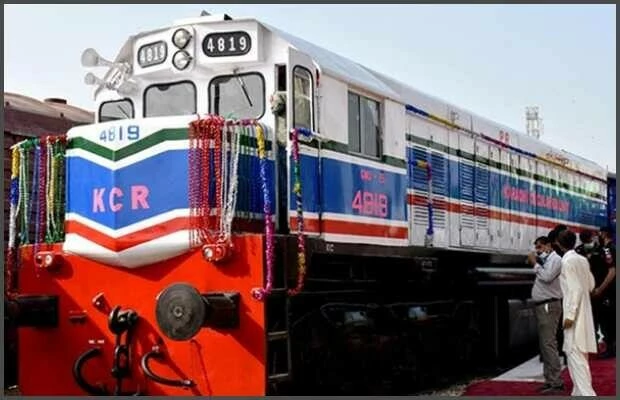Oct 26(ABC): The de-tracked Karachi Circular Railway Project (KCR), worth Rs 292.389 billion, cleared a crucial hurdle towards its realization as it secured the nod of a key government decision-making forum.
The approval for the project was given during a meeting of the Central Development Working Party (CDWP) which was chaired by Federal Planning Minister Professor Ahsan Iqbal.
The project envisages the construction of a 44-kilometer long and dedicated railway track, around 1.435-meters wide standard gauge, passing through some of the most densely populated parts of Karachi housing the lower and middle education working class and connecting it to the industrial hub.
It starts from Drigh Road and snakes through different areas including, Gulshan-e-Iqbal, Federal B Area, Liaquatabad, North Nazimabad, Nazimabad, Sindh Industrial Trading Estate (SITE) and Lyari.
The scope of work includes the construction of horizontal and vertical curvature, roadway / railway cross-section elements, ramp gradients and layout of structures with respect to the alignment.
The scope of work also includes the construction of stations, provision of drivers, information, regulatory and warning signs, passenger facilitation signs along with allied facilities.
Route Alignment of the KCR
The project is a part of an overall scheme for the improvement of transport infrastructure including road network, provision of public transport / mass transit facilities and traffic management in Karachi, the largest city of Pakistan and the capital of Sindh.
The development of the KCR as a modern urban railway will augment existing public transport facilities in Karachi – including an under construction dedicated bus service along a portion of the railway – which have fallen short of meeting the exponential transportation demand over the last few decades.
The main objective of the project is to provide reliable, safe and environmentally friendly public transport to Karachi.
The project entails the construction of a 43-kilometer dual track urban rail mass transit system expected to be constructed in a period of four years.
The project aims to serve around 457,000 passengers daily, which is expected to soar to a million per day in the future.
The project will deploy the use of electric trains and will operate seven days a week and 17 hours a day.
Around 30 stations are expected to be constructed under the project along the corridor covering the densely populated areas of the city.
The economic benefits of the project are phenomenal in terms of saving vehicle operating costs, environmental protection, accidents and time savings, contribution towards promoting gender equality, and spill-over tax impact.

